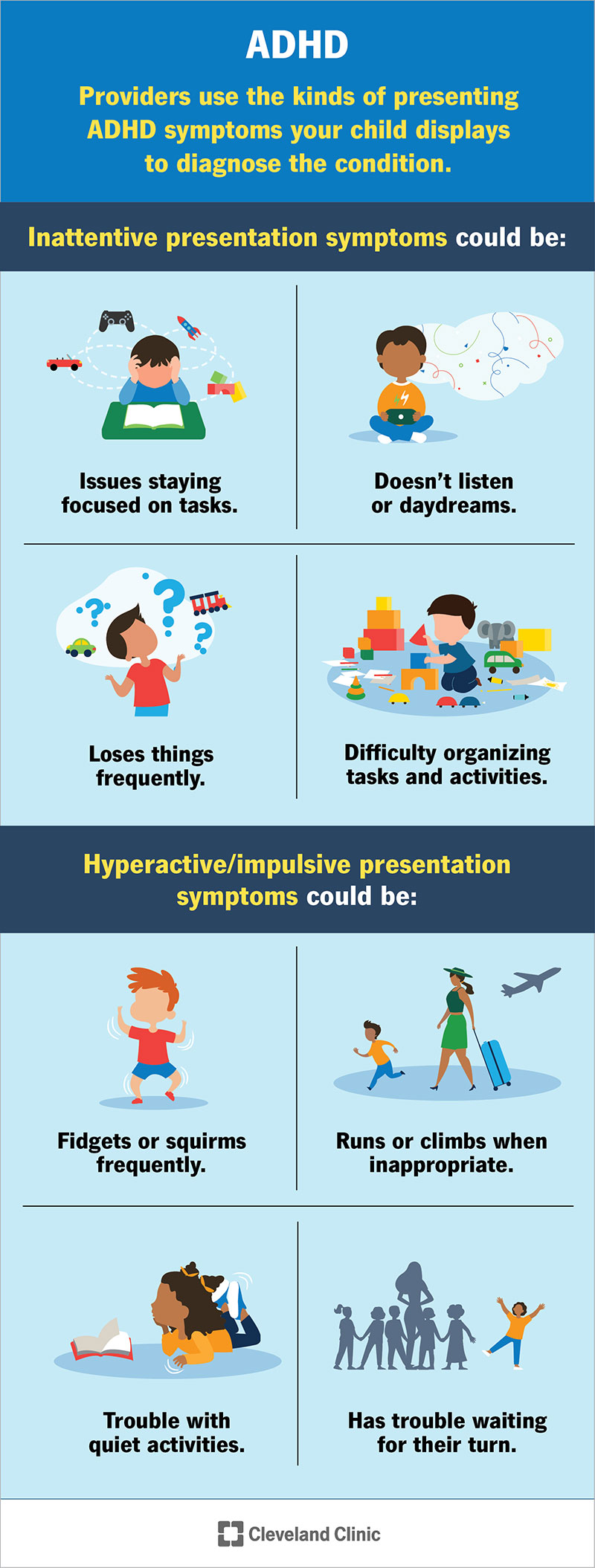Your Guide to Discovering the Right ADHD Therapy for Long Lasting Results
Navigating the complexities of ADHD treatment needs a nuanced understanding of both the condition and the myriad alternatives readily available for reliable administration. It is crucial to acknowledge that what benefit one individual might not always produce the same outcomes for another. Thus, a customized technique-- incorporating expert support, drug, behavior methods, and way of life adjustments-- becomes paramount. Nevertheless, the journey toward determining one of the most ideal therapy plan can be fraught with difficulties. What are the crucial variables that affect successful results, and how can individuals ensure they are on the ideal course?
Recognizing ADHD and Its Impact

In grownups, ADHD can lead to challenges in workplace environments, influencing productivity, time monitoring, and social connections. Commonly, undiagnosed or poorly took care of ADHD can add to co-occurring psychological health concerns, such as stress and anxiety and clinical depression, further making complex an individual's general well-being.
The societal understanding of ADHD can vary, bring about preconception and misconception, which may hinder people from seeking assistance. As recognition grows, it is vital to cultivate a setting that promotes understanding and assistance for those influenced by ADHD, highlighting the demand for precise medical diagnosis and customized strategies to mitigate its effect on daily life.
Summary of Treatment Options
A detailed method to treating ADHD includes a range of options customized to the individual's distinct requirements. These options can broadly be classified into behavior treatments, psychoeducation, and way of life adjustments, alongside medicinal therapies that might be explored later on.
Behavior treatments, such as cognitive-behavioral treatment (CBT), focus on customizing details actions and establishing coping methods to handle symptoms successfully. Psychoeducation plays a vital duty in encouraging both people and their households by giving information about ADHD, its obstacles, and reliable strategies for assistance.
Way of living alterations can dramatically impact ADHD management. Regular exercise, a well balanced diet regimen, and adequate sleep add to total health and signs and symptom control. Mindfulness methods and relaxation strategies can additionally enhance emphasis and lower impulsivity.
Support system and household treatment can promote a sense of community and understanding, helping individuals really feel much less separated in their experiences. Each therapy choice need to be taken into consideration along with the individual's preferences and conditions, guaranteeing an all natural method that advertises lasting success. Ultimately, the goal is to develop a tailored therapy plan that deals with the details challenges related to ADHD while boosting general quality of life.
Drug: Benefits And Drawbacks
Medication plays a crucial function in the therapy of ADHD, with various options available that can dramatically minimize signs my response and symptoms for several people. Energizers, such as methylphenidate and amphetamines, are commonly suggested and have actually shown efficiency in improving focus, lowering impulsivity, and enhancing total behavior. These medications work by enhancing dopamine and norepinephrine levels in the brain, which are frequently dysregulated in those with ADHD.
However, using medication is not without its challenges. Some people may experience negative effects, consisting of insomnia, decreased cravings, or boosted anxiousness. Moreover, locating the ideal dose can be a trial-and-error process, requiring close tracking by medical care experts. Additionally, not all patients react to stimulant medications, leading some to check out non-stimulant choices, which may have a postponed onset of activity or different negative effects.
It is vital for people and their family members to evaluate these pros and cons thoroughly. Stabilizing the advantages of sign administration versus possible adverse effects is vital for achieving optimal therapy outcomes. Collaboration with doctor can promote enlightened choices, making sure that drug becomes part of a thorough find here ADHD management plan.
Behavioral Therapy Techniques

One commonly employed approach is Cognitive Behavioral Therapy (CBT), which helps individuals recognize and alter adverse idea patterns that add to ADHD-related challenges. Therapist for ADHD. With CBT, customers find out to establish reasonable objectives, handle time effectively, and establish business systems
An additional effective technique is Moms and dad Management Training (PMT), which enlightens parents on how to strengthen positive actions and lower unfavorable ones through regular self-control and interaction approaches. This approach promotes an encouraging home setting that urges behavior improvements.
Social skills training is likewise essential, aiding individuals with ADHD navigate social communications more successfully. Role-playing and modeling proper actions can improve social skills and decrease anxiety in social scenarios.
Lifestyle Modifications for Better Monitoring
Just how can way of life changes considerably boost the management of ADHD symptoms? Applying calculated lifestyle alterations can cause significant enhancements in emphasis, organization, and emotional original site guideline for people with ADHD.
First of all, establishing a structured everyday routine helps in creating predictability, which can reduce sensations of overwhelm. Regular schedules for meals, research study, and rest can boost day-to-day functioning.
Including routine physical activity is also vital, as workout has been shown to improve dopamine levels, boosting focus and inspiration (Therapist for ADHD). Aiming for a minimum of thirty minutes of moderate exercise most days can be beneficial
Nutrition plays a critical function. A well balanced diet regimen rich in omega-3 fats, whole grains, and protein can support cognitive function. Restricting refined sugars and high levels of caffeine may reduce signs, as these can cause energy crashes and impatience.
Final Thought
In final thought, discovering the appropriate ADHD therapy demands a complex technique that considers individual demands and preferences. Collaboration with healthcare experts and open interaction with support networks are necessary elements in browsing the intricacies of ADHD monitoring, eventually leading to long-term outcomes and enhanced quality of life.